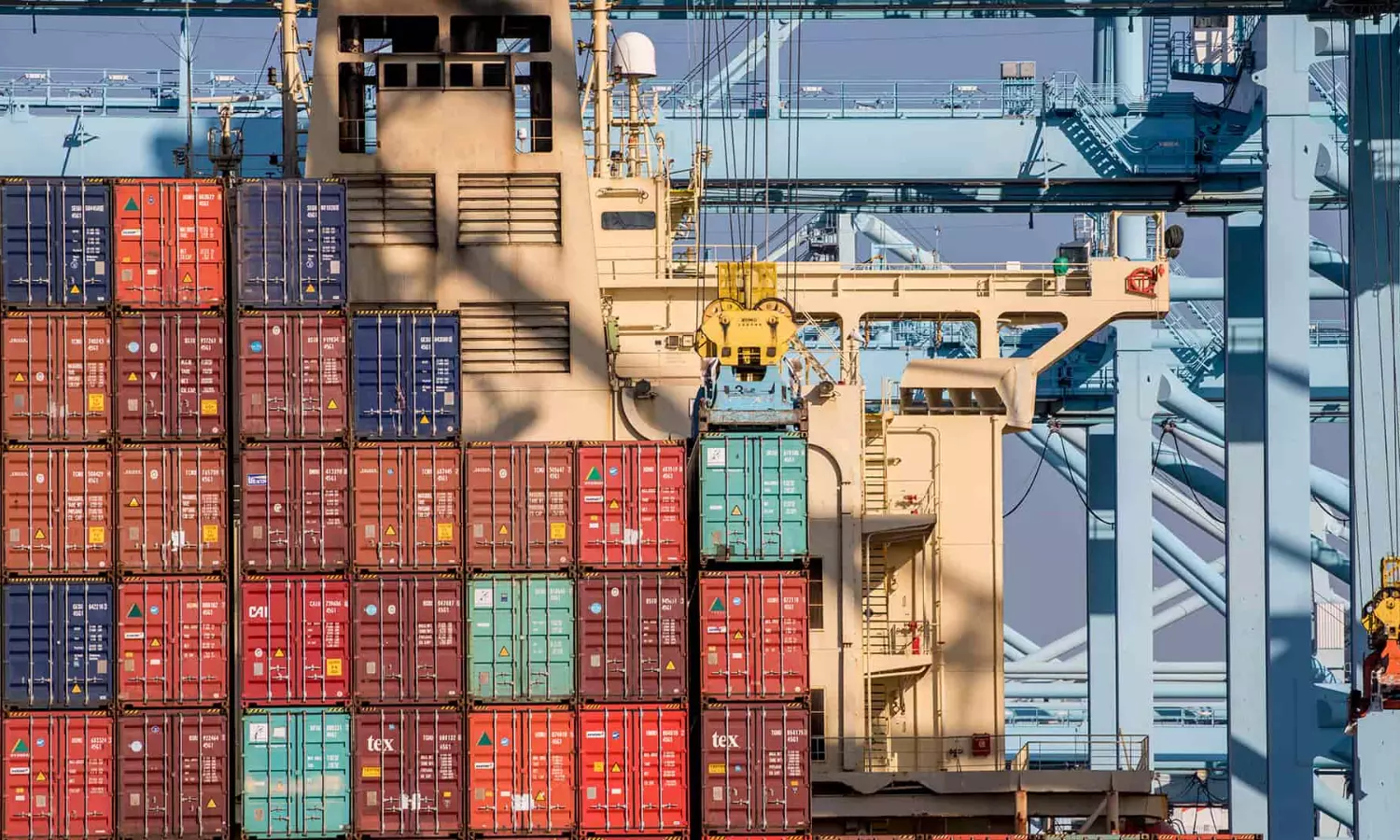Cargo stowage failures surge as ships reroute around South Africa
The SAMSA reported that from July to August 2024, they have had about 200 overboard container cases.

The maritime industry is experiencing a significant increase in the number of cargo stowage failures and container losses off the coast of South Africa specifically near the Cape of Good Hope, stated a report by Gard. Many ships are avoiding the Red Sea and sailing around South Africa, leading to the severe and unpredictable weather conditions associated with the region.
The cape waters are notorious for their harsh weather, which is marred by swells, rogue waves, and strong winds, thus making it difficult to navigate the waters. The winter months of the southern hemisphere brought several problems like cargo lift damage, defect, and, the most tragic, death of the crews on the merchant ships. The influence of waves on vessels has resulted in substantial injuries and death, revealing the many risks involved in operating in such harsh weather.
Cargo stowage failures are not only about cargo loss. Cargo that is not tightly secured can move across the ship, causing the ship to list and diminish its stability. The most common concerns about fires were reported in cases with chemicals and lithium-ion batteries, they are a great stranger to safety. When a cargo falls overboard it creates a serious hazard for other ships and becomes a part of marine pollution. Usually, lost container debris finds its way to the beach and expensive environmental cleanup operations have become a recurrent problem for shorelines.
The South African Maritime Safety Authority (SAMSA) reported that from July to August 2024, they have had about 200 overboard container cases. The global cargo ship loss figure was heartening last year with their reduction to 221 lost containers from an estimated 1,000 hundred per year; still, the frequency of the incidents that took place in the South African waters signifies a probable reversal of the positive trend.
The increased ships' movement around the Cape presents additional burdens to transportation operations. Their limited space made the logistics operators to come up with desperate measures to load the containers on bulkers or to place them on top of the cargoes. The risks are therefore enhanced. Moreover, in the event of a major accident, vessels in distress face limited options for assistance.
Shipping operators should enhance the procedures outlined in their Safety Management Systems to reduce risks associated with severe weather. Crews are urged to perform lashing checks early in their voyages, ensuring that these checks are conducted safely. Another operational risk is engine blackouts due to lubrication oil displacement in rough seas, which requires immediate attention.
As the maritime industry strives to enhance safety, increased collaboration is crucial. Initiatives like the MARIN TopTier project and upcoming regulations under the SOLAS convention, which will require the reporting of lost containers, demonstrate efforts to tackle these issues. However, with more vessels choosing to reroute via the Cape of Good Hope, operators need to stay alert to promote safer stowage practises and better prepare for challenging weather conditions.


